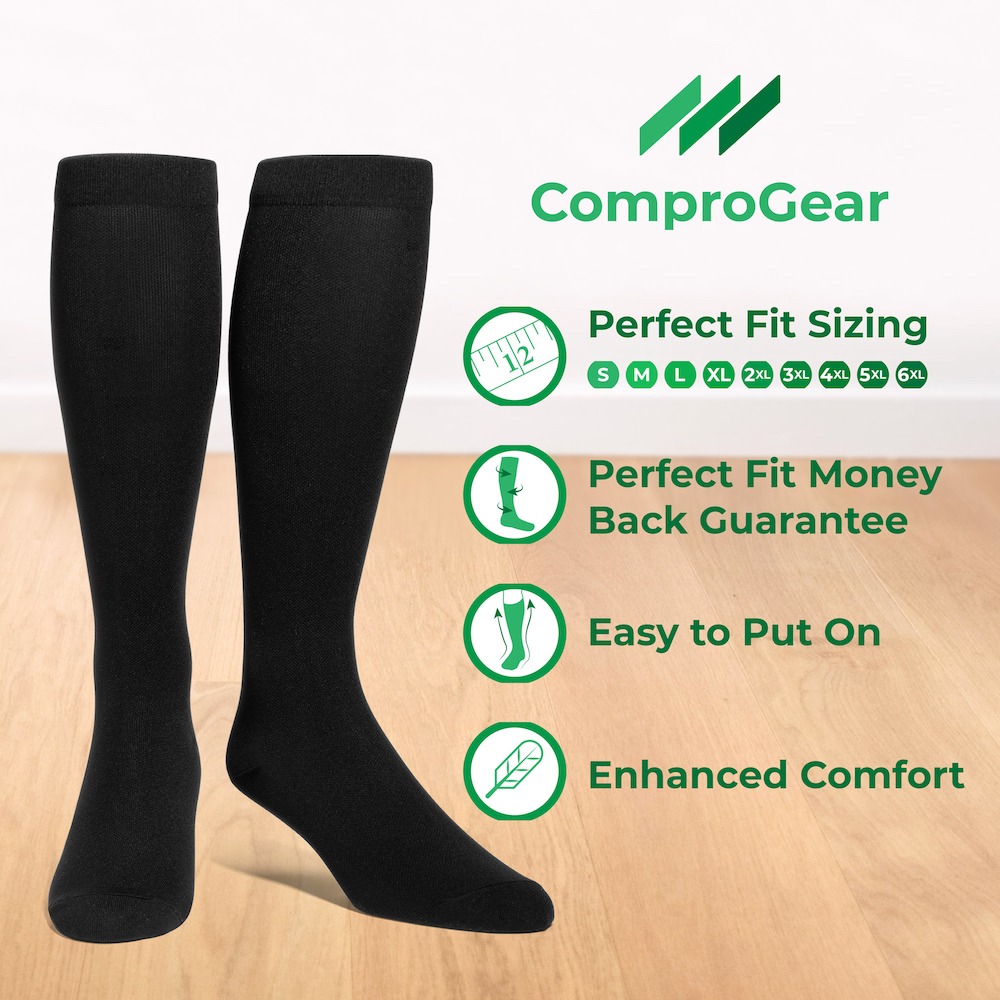Most people should not sleep in compression socks, unless recommended by their doctor.
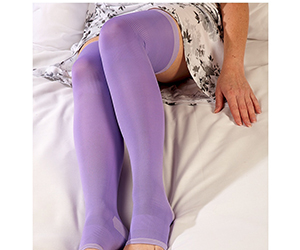
When it comes to sleeping and lying down, our circulatory systems no longer have to fight against gravity to push blood and fluid back to our hearts. When you add compression socks to this equation, the added pressure to your ankles can actually cut off your circulation.
However, there is an underground world of people that do sleep in their compression gear with no bad side effects.
When are times there are a lot of pros and cons. Let us educate you on this question so you’ll be able to understand and decide for yourself. In case you’re unsure of what compression socks are, let’s have a brief discussion of what they do and why people use them.
Compression sock are widely used in the treatment of venous disorders.
“What are venous disorders?” you may ask. They are medical conditions that cause damage to your veins. Veins are the vessels that deliver blood towards the heart after the oxygen they contain is used by our bodies.

Venous disorders can become extremely dangerous if allowed to go unchecked. They can ultimately leave you unable to do even the simplest of tasks, including walking! Compression socks aren’t just for people with venous disorders, however. You don’t have to have a medical condition to wear compression socks. Many athletes and active people use different types of compression socks to help them during their workouts, as they can help boost performance, reduce pain, and lower the risk of certain injuries.
What Do Compression Socks Do?
Compression socks are designed to “compress” (no surprise there!) muscles and the veins that carry blood. As previously stated, compression socks are ideal for those who suffer from a venous disorder or engage in athletic or sports activities. The tight compression socks are made of elastic and come in various shapes and sizes to accommodate a variety of people.
The strong and tight elastic ensures that a good level of compression is put on the ankles, feet, and legs.
How Do Compression Socks Work?
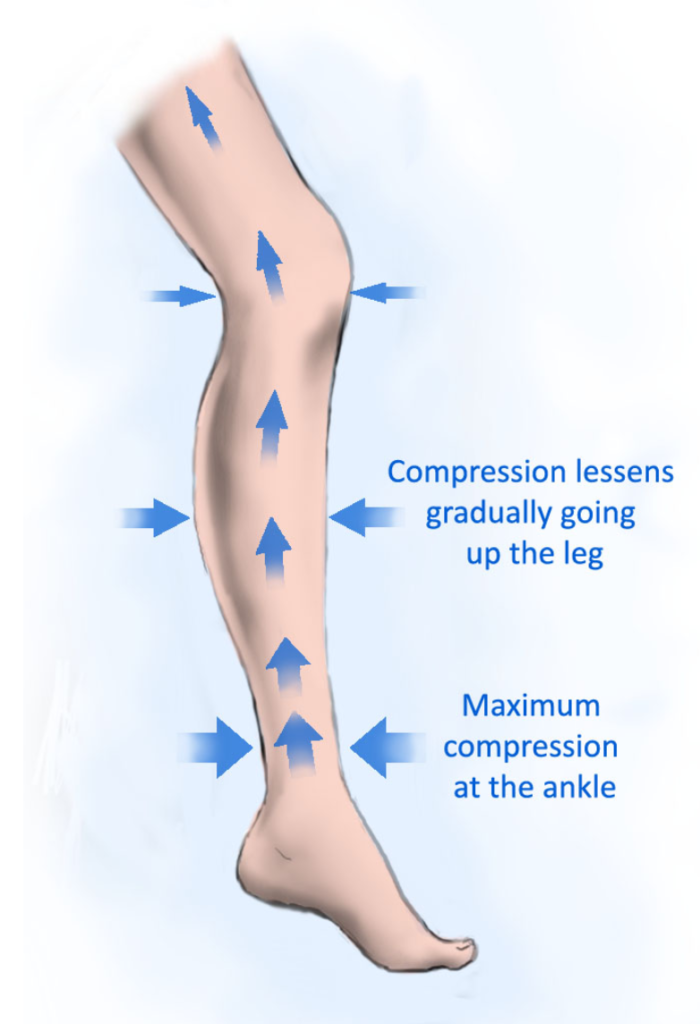
The tight elastic design compresses and tightens the surface veins and arteries around the leg muscles, forcing blood to flow effectively along narrow channels. This increases the blood pressure in arteries (more technically known as “arterial pressure”), which increases blood flow to the heart and keeps blood from pooling in the legs.
Because the tight compress allows blood to flow more smoothly and efficiently, it prevents muscle soreness by reducing the buildup of lactic acid.
Compression socks are usually available in two different types. The first type is knee-high compression stockings, which compress the area below the knee. The second type is thigh-high compression stockings, which compress the leg from the thigh downwards.
Related Articles on ComproGear
How Long To Wear Compression Socks for Edema https://comprogear.com/how-long-to-wear-compression-socks-for-edema/
Best Compression Socks for Elderly https://comprogear.com/best-compression-socks-for-elderly/
Best Compression Socks for Sitting All Day https://comprogear.com/best-compression-socks-for-sitting-all-day/
What are the Best Socks for Circulation https://comprogear.com/what-are-the-best-socks-for-circulation/
Compression Stockings mmHg Chart https://comprogear.com/compression-stockings-mmhg-chart/
So, Is It Okay to Wear Compression Socks to Sleep?
Can you sleep in compression socks? Generally, no.
- If you are a healthy individual who does not have venous disorders or muscle issues, then you should not wear compression socks to bed. They should only be worn during the day while you’re active.

Keep in mind that even those who have been diagnosed with venous disorders or muscle problems must still consult a physician before using compression socks at night. Here’s why: We mentioned earlier that compression socks use tight elastics to compress the area around the leg. This “tightness” or pressure varies from one type of compression socks to another. These are the general pressure standards that can be seen in compression socks:
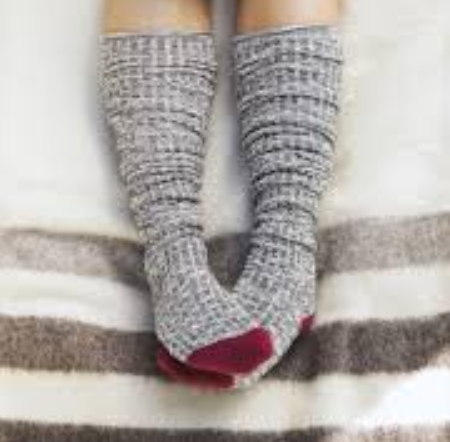
- Low compression: Below 15 mmHg
- Mild compression: 15-20 mmHg
- Moderate compression: 20-30 mmHg
- High compression: Above 30 mmHg
In case you’re wondering, mmHg stands for “Millimeter of Mercury”, and is the standard of pressure measurement used to assess the amount of pressure placed on a surface. Socks with high and moderate compression levels should only be worn during strenuous workouts and during the day time.
They might sometimes be used in other situations, if your doctor advises you to wear them after examining the extent and degree of your medical condition.
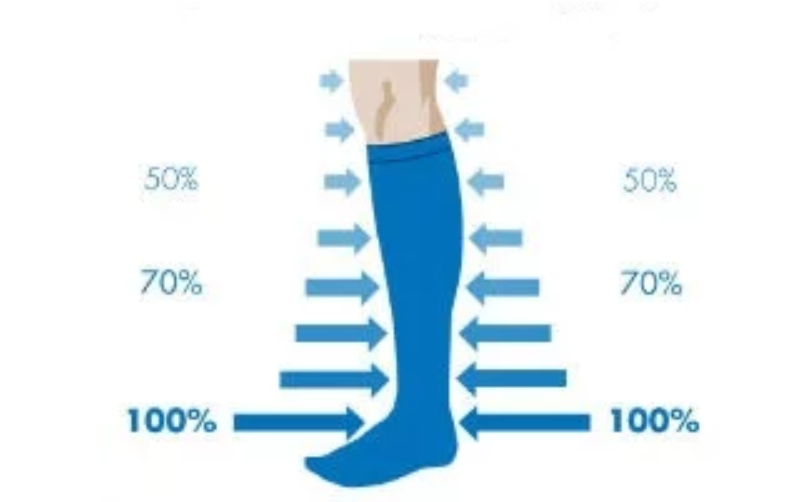
If, for example, you recently underwent surgery related to your legs or spine, your doctor might tell you to wear compression socks at night. Aside from that, however, you should only wear them during the day while you’re active. As is the case with moderate and high compression socks, moderate and mild compression socks can be worn at night, but ONLY under the guidance of a doctor.
Again, this is not recommended if you are a generally healthy person who does not have any medical problems related to your legs, veins, or muscles. However, wearing such compression socks (moderate and mild) for short periods before and after an intense workout or a long run is fine.
Low compression socks (pressure below 15 mmHg) are recommended for night wear, but, again, only under the directions of a doctor. As is the case with other compression levels, it is not recommended for otherwise healthy individuals to wear compression socks while sleeping.
Why Shouldn’t I Wear Compression Socks When I Sleep?
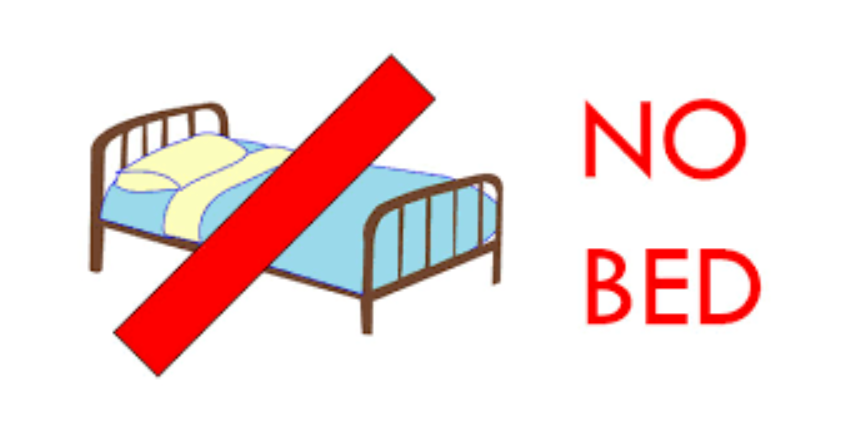
Remember earlier in the article when we talked about how compression socks work and why they’re used? Well, it’s time to get a bit more scientific about that. When you wear compression socks during the day, you’re in an upright position. Your blood circulation and veins have to fight gravity, and if you have a venous disorder, it’s hard for them to do this in order to circulate blood efficiently.
Fortunately, graduated compression helps the circulatory system by consistently providing pressure to fight gravity and avoid major disruptions in blood flow. When you are sleeping, however, your body is completely horizontal, so your body, muscles, and circulatory system don’t have to fight the gravitational pull. If constant pressure is put on your legs during this time, the pressure can disrupt blood circulation, causing muscle inflammation and pain in the legs and ankles.
This page last updated November 5, 2022
